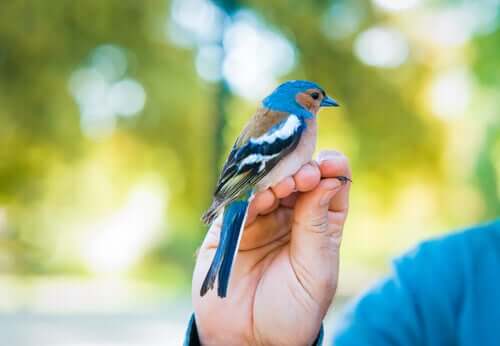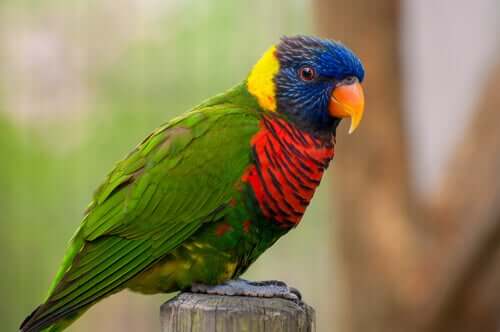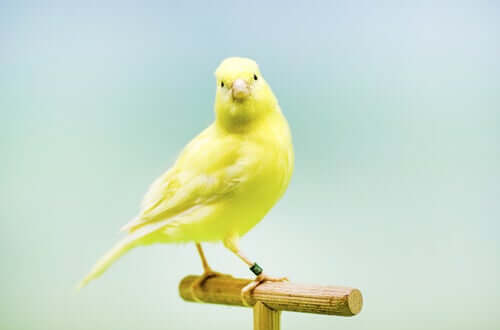How to Deworm Your Bird

Birds are pets that require very simple care. However, you must take the diseases that riddle these animals into account. Another question is whether you should deworm your bird. Healing this condition in birds is much more difficult than in other pets, such as cats or dogs.
The climate influences the manifestation of parasites
Increasing environmental temperatures due to changes of season create the right conditions for the appearance of parasites. During the arrival of spring and summer, the risks are greater. Red lice, mites, aphids, and ticks can get in their plumage and cause skin discomfort. Those are external parasites.
Birds also can get internal parasites that cause stomach and intestinal discomfort.

How do you know if it’s time to deworm your bird?
To find out if you have to visit the vet due to parasites, it’s necessary to observe your bird. If it has one of these symptoms, it’s advisable to take it to the vet:
- Unexplained nervousness.
- It scratches its plumage repeatedly with its beak.
- Some areas of its body lack feathers.
Why you should administer deworming
Parasites can cause stomachache, abdominal pain, abnormal mood, discomfort, and even death. It’s uncommon for birds to transmit diseases to humans. But certain types of parasites can affect the most vulnerable people. This is the case of children, the elderly, or people with immune system deficiencies or diseases. Its best for the pets and their owners to ensure they’re dewormed.
Types of antiparasitic drugs
The veterinarian is the right person to deworm your bird. They’ll be able to determine the type of parasite that has lodged in its body. They’ll then indicate the appropriate treatment. You can find two types of antiparasitic drugs in pet shops:
- Internal antiparasitic drugs. These drugs are administered orally. This antiparasitic is recommended to clean the bird’s digestive tract. There are several types of these drugs; some are broad-spectrum and others are for specific parasites. To determine the dose and type of product, it’s best if the veterinarian prescribes it.
- External antiparasitic drugs. Insecticides specially created for birds, so they don’t harm their health. They’re applied to the bird’s feathers. Their function is to eliminate the intruder organisms and protect the bird from this problem for some time.
In pet stores, you can find various forms of antiparasitic drugs for topical application:
- Powders. Most of them are made with natural ingredients that are harmless to animals.
- Sprays. They’re simple to apply and less traumatic for the bird because they can be applied from a distance, without touching the animal.
- Ointments. Its application involves taking the bird with your hands. These have broader effects, such as fighting infection, inflammation, and pain.
Whatever antiparasitic you choose, it’s advisable to read the labels. Then, follow the product and the veterinarian’s instructions.

How often you should deworm your bird
Ideally, you should do this twice a year. One of those times should be at the beginning of spring, due to climate change. Again, the veterinarian, according to the bird’s conditions, should establish the appropriate time.
Prevention
The bird’s cage, as well as being appropriate for the bird’s size, should always be clean. We recommend a weekly deep cleaning. If your bird became infected with parasites, deworming isn’t enough. It’s also necessary to eliminate intrusive organisms from the cage. This is because this also eliminates the possible presence of eggs and larvae through which they reproduce.
How to keep your bird healthy
There are certain recommendations to help keep your bird healthy:
- Use a large cage so your bird won’t feel uncomfortable. The bird must have enough freedom to move.
- Put the cage in a place with good natural light and ventilation. This prevents the feeling of confinement, which can cause nervousness and restlessness.
- Install structures in the cage so your bird can exercise. The most common structures are swings. This way your bird will have stronger legs.
- Make sure your bird is eating a proper diet. Each bird has an appropriate diet for their weight and physique.
- Make sure your bird always has water. Your bird needs to have clean water every day to drink when needed.
